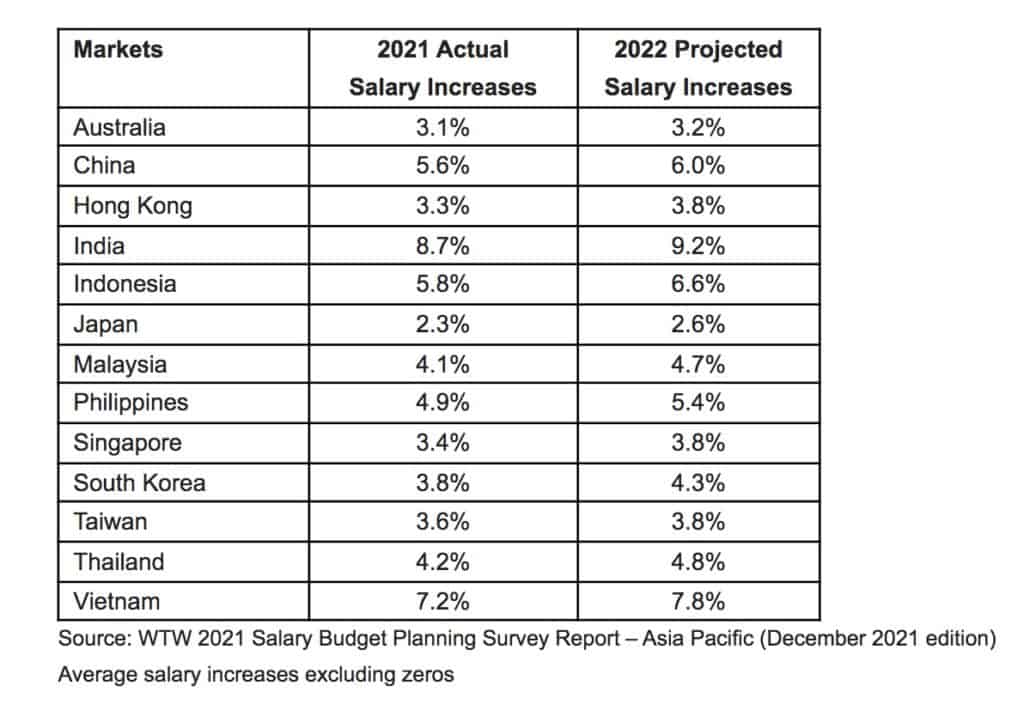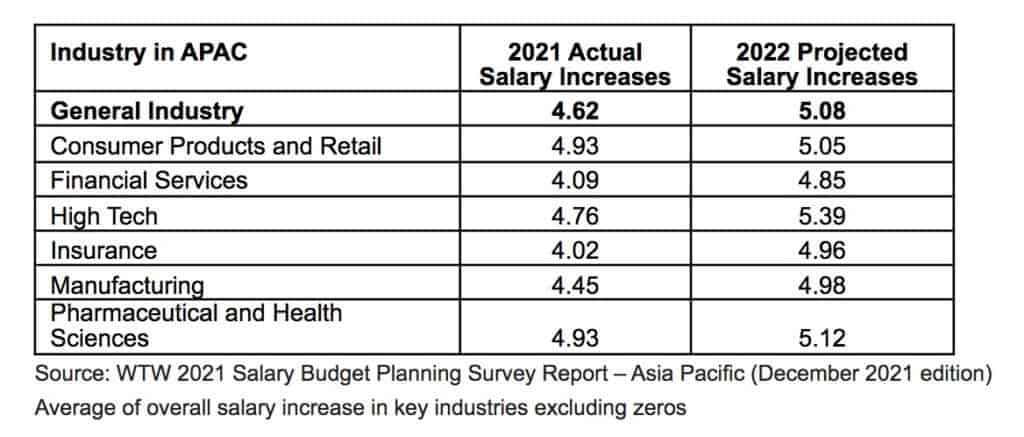Fueled by tight labour markets and the rise in inflation this year, employers in Asia Pacific are boosting their pay rises projections for 2022, said Willis Towers Watson recently when releasing results of a survey of 5,728 firms in the region.
Conducted between October and November 2021, the survey found that two in five respondents (42%) are planning to increase pay rises this year.
Survey highlights
- A quarter of the respondents (25%) have changed and increased their expected salary increase budgets for 2022 from the original projections made in July last year.
- Companies in APAC are now budgeting an overall average increase of 5.08% for executives, management and professional employees, and support staff this year. Companies gave employees an average pay increases of 4.62% in 2021.
- One-third (30%) of employers cited the tight labour market for increasing their budgets from prior projections, while 23% cited anticipated stronger financial results and 19% on concerns related to cost management such as inflation and rising cost of supplies.
With APAC’s consumer price index (CPI) expected to hit 3% or even more in some markets, employers will most likely take living costs into account for salary increases, said Edward Hsu, Business Leader, Rewards Data and Software, Asia Pacific.

Manpower shortage drives up demand for skilled workers
In addition, a shortage of manpower in some sectors is driving up demand for skilled workers, and a push for growth in others is igniting a war for talent as companies compete to attract and retain employees who have more choices than in recent years, WTW noted.
The total attrition rates in several markets such as Australia, Hong Kong, Singapore, South Korea and Thailand have increased significantly, with most now exceeding pre-pandemic levels, the firm added.
The company advised employees to look into their retention strategies .
Whether an organisation is experiencing the Great Resignation or the Great Hire phenomena, having relevant and competitive pay and benefit packages remains critical to attracting and retaining talent, Hsu said.
There’s a great reprioritisation of work, rewards and careers under way, and it’s putting significant pressure on compensation programmes for many employers,” he added.
“Bigger pay rises alone will not be enough to help address their attraction and retention challenges,” he pointed out. “Winning the talent race will require employers to continue to be creative and comprehensive with their total rewards strategy.”
It’s also important to design a forward-looking rewards programme that is built for future success to support the business, he added.





